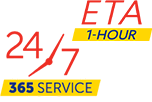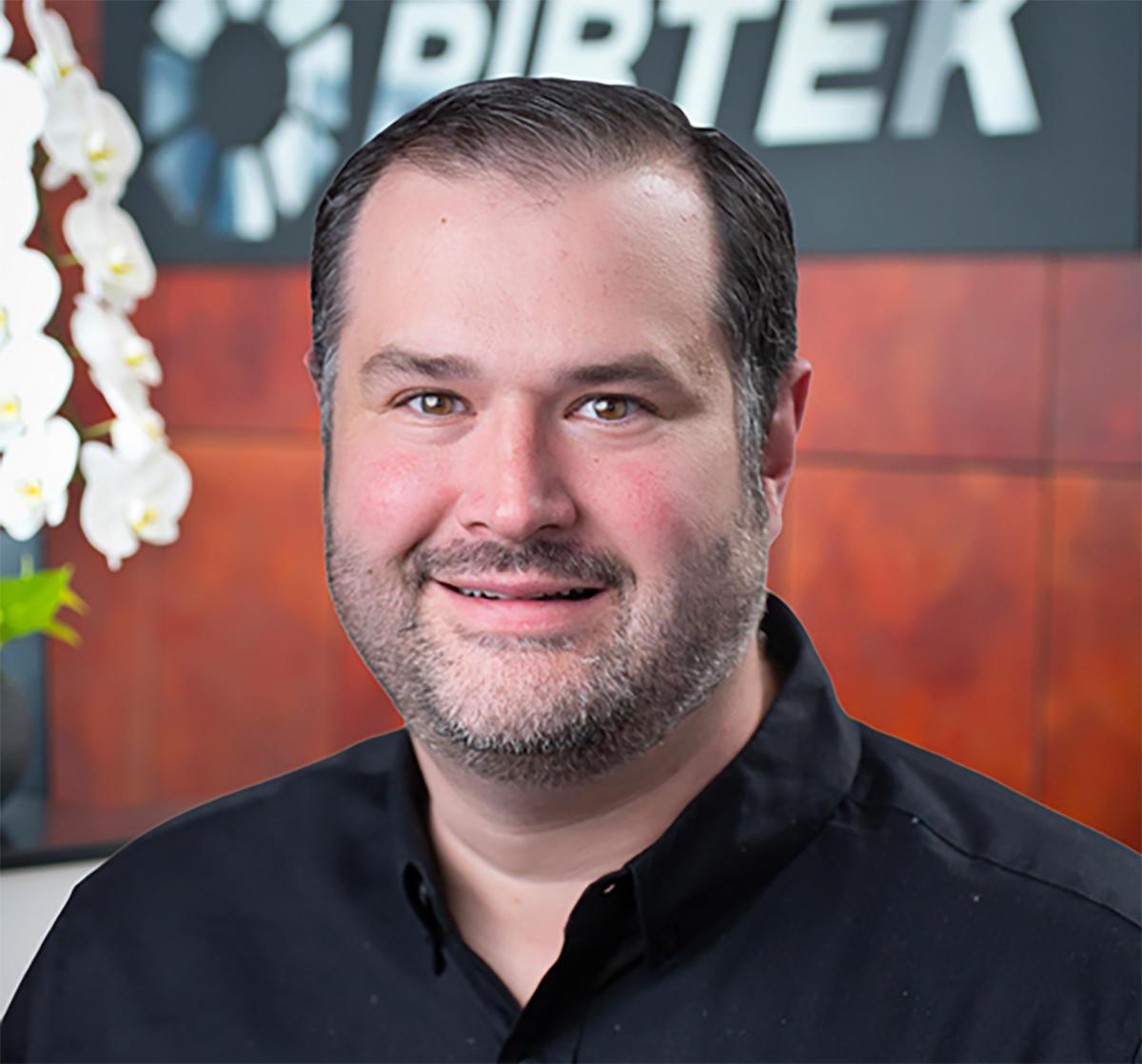Originally published in Medium’s Authority Magazine
An interview with Kage Spatz, CEO at Spacetwin.
People don’t just want to know what’s going on; they want to know that they’re seen, valued, and part of something bigger than themselves.
How do you grow in a challenging market? What steps can business owners take to grow their business during unpredictable times?
As part of our Strategy Series, Kage Spatz talks with fellow successful Entrepreneurs and growth experts to help you discover new ways to grow your business during challenging economic times. Today, we had the pleasure of interviewing John Dobelbower.
As VP of Franchise Development at PIRTEK, John Dobelbower brings 20 years of business experience. He develops and implements aggressive strategic initiatives as the leader of the North American franchise development team. John previously led franchise development for the world’s largest home service company, Neighborly Brands, breaking every franchise development record in the company’s 40+ year history. John has launched, grown, and exited four small businesses. He holds a business management degree from Mays Business School at Texas A&M and International Franchise Association’s Certified Franchise Executive (CFE) designation.
Thank you for joining us! Our readers would love to “get to know you” a bit better. Can you tell us your ‘backstory’ and how you got started?
My entrepreneurial journey started back in college. I launched a house painting business to help pay for school, and it took off faster than expected. I ended up employing a bunch of my friends and expanded to three different locations before I graduated. That experience lit the fire in me for business ownership, and from that point forward, I was hooked.
The biggest venture I took on was a scrap metal recycling business I built from the ground up. It grew quickly, and so did the workload. I was working 80 to 100-hour weeks consistently. The problem was, I was building the business around myself instead of building it around systems. Everything flowed through me — decisions, operations, cash flow — and I paid the price for it. One of my employees ended up embezzling a significant amount of money from the company, and because there were no real systems or controls in place, it went unnoticed until it was too late.
That was a hard but incredibly valuable lesson: a business that depends entirely on the owner isn’t scalable and it isn’t sustainable. That experience is what led me to franchising. I saw the power of a model built around systems, accountability, and support. Now, in franchise development, I get to help other entrepreneurs avoid the same pitfalls I faced and scale their businesses the right way from day one.
Can you share with our readers a story from your own experience about how you were able to grow your business during a challenging economy?
Absolutely. When I was running my scrap metal recycling business, we were operating in a highly volatile market. Commodity prices could swing dramatically with the economy, and every fluctuation had a direct impact on our margins. During one particularly tough stretch, when prices bottomed out, we were still able to grow, but it took grit, a focus on relationships, and a willingness to outwork the instability.
We didn’t chase the highest margins; we focused on being the most reliable. That meant showing up on time, communicating clearly, and doing what we said we would do. In a chaotic market, being dependable became our competitive edge. But while we grew the business during that time, it came at a cost. I was working those 80 to 100-hour weeks because everything in the business depended on me. Ultimately, that lack of structure cost me dearly.
That’s part of what drew me to franchising in general. PIRTEK operates in a space that’s relatively insulated from economic swings. Our service is essential to industries that keep moving, no matter what the economy is doing. But more importantly, the franchise model gives owners a system they can trust. It’s a business designed to scale without burning the owner out, because it’s built on process, support, and infrastructure. After experiencing growth the hard way, I’ve made it my mission to help others grow the smart way.
Did you ever consider giving up? Where did you get the motivation to continue through your challenges? What sustains your drive?
Oh, absolutely. There were moments in my journey, especially during the final stretch of my scrap metal business, where giving up felt like the only logical option. When you’re working 100-hour weeks, putting everything you have into something, and then get blindsided by something like embezzlement, it can knock the wind out of you. I’d be lying if I said I didn’t question whether it was all worth it.
What kept me going was my family. I had responsibilities bigger than myself, and giving up just wasn’t on the table. I also knew that even though I had made some painful mistakes, I wasn’t done learning. There was still something valuable on the other side of that failure.
What sustains my drive today is the chance to use those lessons to help other people avoid the same traps. In franchising, I get to help entrepreneurs build businesses that don’t require them to sacrifice everything to succeed. That mission keeps me motivated. I know how hard business ownership can be when you’re on your own, and I also know how powerful it can be when you’re part of a system that has your back. That’s what drives me.
What would you say is the most critical role of a leader during challenging times?
I think the most critical role of a leader during challenging times is to provide clarity. When everything feels uncertain or unstable, people naturally look to leadership for direction; not necessarily to have all the answers, but to have a steady hand on the wheel.
As a leader, you have to be the calm in the storm. That doesn’t mean pretending everything’s fine either; it means being honest about the challenges while offering a clear path forward. People can handle bad news. What they can’t handle is confusion or silence.
During tough times in my own businesses, I learned that your team needs to hear from you before they hear from rumors, speculation, or fear. They need to know what the plan is, even if the plan is simply to regroup and focus on fundamentals. A leader’s presence and clarity can be the anchor that holds a team together when everything else feels shaky.
When the future seems so uncertain, what is the best way to boost morale? What can a leader do to inspire, motivate, and engage their team?
In times of uncertainty, morale hinges on two things: communication and connection. People don’t just want to know what’s going on; they want to know that they’re seen, valued, and part of something bigger than themselves.
As a leader, one of the most powerful things you can do is to show up — not just with answers, but with empathy. Ask your team how they’re doing, check in regularly, and be transparent about both the challenges and the progress being made. Uncertainty breeds anxiety, but visibility creates trust.
It’s also important to find ways to celebrate small wins. When big victories feel far away, those small moments of progress become even more meaningful. Recognizing your team, giving them ownership of the mission, and reminding them why their work matters. Those are the things that keep people motivated when things get tough.
At PIRTEK, we’ve seen firsthand how crucial that is. Whether it’s a franchisee navigating a labor shortage or a tech showing up for an emergency repair in the middle of the night, we make sure people know they’re not doing it alone. Culture eats strategy when times get hard, and as a leader, you’re the one who sets that tone.
How can a business leader make plans when the future is so unpredictable?
You plan for unpredictability by building flexibility into your business. The future is always uncertain. Whether it’s economic downturns, supply chain challenges, or labor shortages, you can’t control the chaos, but you can build a business that’s designed to withstand it.
That’s why I’ve become such a strong believer in systems. When your business is grounded in proven processes, you’re not reinventing the wheel every time the environment shifts. You’re simply adjusting within a framework that already works.
At PIRTEK, we saw this play out during the COVID-19 pandemic. While many industries came to a standstill, our franchisees remained operational because of the essential nature of our services. But even then, they had to adapt quickly. Technicians had to follow new safety protocols, inventory delays forced adjustments in sourcing, and hiring challenges meant owners had to get creative with team structure. The beauty of our system is that it allows for those kinds of pivots without compromising the core business.
Our model gave franchisees the confidence and support to keep moving forward while others were pulling back. That’s the power of having a resilient infrastructure. You can’t predict the storm, but you can prepare your business to keep moving through it.
What can a company do to avoid losing clients or customers who say, “I just can’t afford it now”?
When someone says, “I just can’t afford it now,” what they’re often really saying is, “I’m not convinced the value outweighs the risk.” That’s especially true in franchise development.
During uncertain times, candidates are more cautious. They may have the capital, but they’re worried about making the wrong move. The key is to shift the focus from cost to value and purpose.
In our development conversations, we emphasize that this is an essential, recession-resilient business built around solving real problems. It’s not a luxury, but it’s a critical need that keeps industrial and commercial operations running, regardless of what the stock market is doing.
But more than that, we help people reconnect with their why. Why are they even considering business ownership in the first place? Is it because they’re tired of missing their kids’ soccer games? Because they want to build equity for themselves instead of spending another decade building it for their employer or corporate America? In tough times, people don’t move forward because the economy is stable; they move forward because their reasons are strong enough.
When we help them clarify that vision and pair it with a proven, supported model like PIRTEK, the conversation shifts. It’s no longer just about affordability, it’s also about making a decision that aligns with their long-term goals, even in a challenging environment.
What lead generation strategies work best during a difficult economy?
In a difficult economy, the best lead generation strategies are the ones that combine precision with authenticity. You can’t just cast a wide net and hope for the best. You have to be laser-focused on who your ideal candidate or customer is, and then speak directly to their pain points and goals.
In franchise development, that means shifting from volume to quality. During economic uncertainty, we lean heavily into content that educates and builds trust. Thought leadership, franchisee success stories, and transparent breakdowns of the business model all help filter in candidates who are serious and not just curious. We also make sure our messaging is clear about the stability and essential nature of the PIRTEK business, which naturally stands out in a crowded space.
Broker relationships also become even more valuable in a down market. Good brokers aren’t just lead generators; they’re matchmakers. They help align the right opportunity with the right person at the right time, which cuts through a lot of noise and hesitation. We invest in those relationships year-round so that when markets tighten, we’re top of mind.
And finally, follow-up is everything. In a challenging economy, people often need more time and more touchpoints before making a move. Having a consistent, personalized follow-up strategy is what keeps opportunities alive and eventually helps them convert, even if the timing isn’t immediate.
Are there specific marketing approaches that work best when times are tough?
Yes, and it really comes down to two things: credibility and connection. In tough times, people are more skeptical and more selective. So, the marketing that works best isn’t flashy; it’s real. It’s about showing up with substance, not just style.
We’ve found that leaning into storytelling and transparency makes the biggest impact. When a candidate hears directly from a franchisee who is thriving in a down market, that story carries more weight than any polished brochure ever could. Real voices and real results create trust, and trust is the foundation of every good decision in uncertain times.
Another approach that works especially well is simplifying the message. In tough markets, people have less bandwidth for complexity. They want to understand quickly: What do you do? How does it work? Why should I care right now? If your marketing can’t answer those questions in plain language, you’ll lose attention fast. Our team constantly refines messaging to make sure we’re clear, consistent, and focused on the “so what” behind the opportunity.
And finally, omnichannel consistency matters. Whether someone finds us through a broker, a webinar, paid media, or organic content, the message has to align across platforms. That kind of strategic consistency builds confidence, and in a tough economy, confidence is what gets people to act.
Can you share 3 or 4 of the most common mistakes you have seen other businesses make during difficult times? What should one keep in mind to avoid that?
Absolutely. I’ve seen a few patterns repeat themselves over the years, both in my own journey and while working with entrepreneurs across the country. Here are a few big ones:
- Cutting marketing too early: When things get tight, the knee-jerk reaction is often to slash marketing budgets. But marketing isn’t just an expense; it’s an investment in visibility and pipeline. In reality, tough times are exactly when you need to double down on being seen and heard.
- Trying to do it all alone: I made this mistake myself in my previous business. I wore every hat, made every decision, and carried the whole load. It works for a while until it doesn’t. Challenging times require clarity and systems, not heroic effort.
- Losing touch with the customer’s reality: It’s easy to focus so much on survival that you forget to listen. Businesses that don’t adapt their messaging, pricing, or delivery model to what customers are actually going through risk losing relevance.
- Paralysis by perfection: Waiting for the “perfect” time to launch something, hire someone, or make a move can be costly. Progress beats perfection, especially when markets are shifting fast.
Now to the primary question of our discussion. Based on your experience and success, what are the five most important things a business should do to grow during a challenging economy?
1 . Focus on solving essential problems. At PIRTEK, we provide emergency hydraulic hose services that keep construction, manufacturing, and logistics moving. That kind of mission-critical work is recession-resistant and helps franchisees grow, even when the broader economy is struggling.
2 . Double down on relationships. During my scrap metal business days, prices could change hourly. It created a lot of uncertainty, but we earned trust by being transparent and reliable. We didn’t offer discounts, but we offered consistency and partnership, which built long-term loyalty.
3 . Keep marketing and keep it real. Don’t go dark when things get hard. Share real wins, educate your audience, and stay top of mind. At PIRTEK, we spotlight franchisee success and let real results do the talking.
4 . Lean into structure and systems. When you build around yourself, your business can’t scale. I learned that lesson the hard way. Systems aren’t just about efficiency; they’re also about resilience. Franchising gives owners a proven framework to build on.
5 . Help people reconnect with their “why.” In our development process, we always help candidates get clear on why they want to own a business. Whether it’s time, freedom, equity, or purpose, that clarity helps people move forward with confidence, even when the economy is shaky.
We are blessed to have prominent names in Business, VC funding, Sports, and Entertainment read this column. Is there a person in the world whom you would love to have a private breakfast with, and why?
If I had the chance to sit down for breakfast with anyone, it would be Peyton Manning. Not just because of his legendary career, but because of how he approached leadership on and off the field.
What stands out most about Peyton is his preparation. He wasn’t just talented, he was relentless in studying film, understanding his teammates, and taking responsibility for the outcome, win or lose. That’s the kind of leadership that resonates with me. In business, especially during challenging times, the ability to remain composed, detail-oriented, and focused on elevating the team around you is everything.
I’d love to hear how he handled high-pressure moments, what he looks for in a great team, and how he transitioned from player to businessman and leader in a whole new arena.
Great choice. How can our readers further follow your work online?
The best place to follow my work is on LinkedIn, where I regularly share insights on franchise development, leadership, and entrepreneurship. I’m passionate about helping others transition into business ownership.


